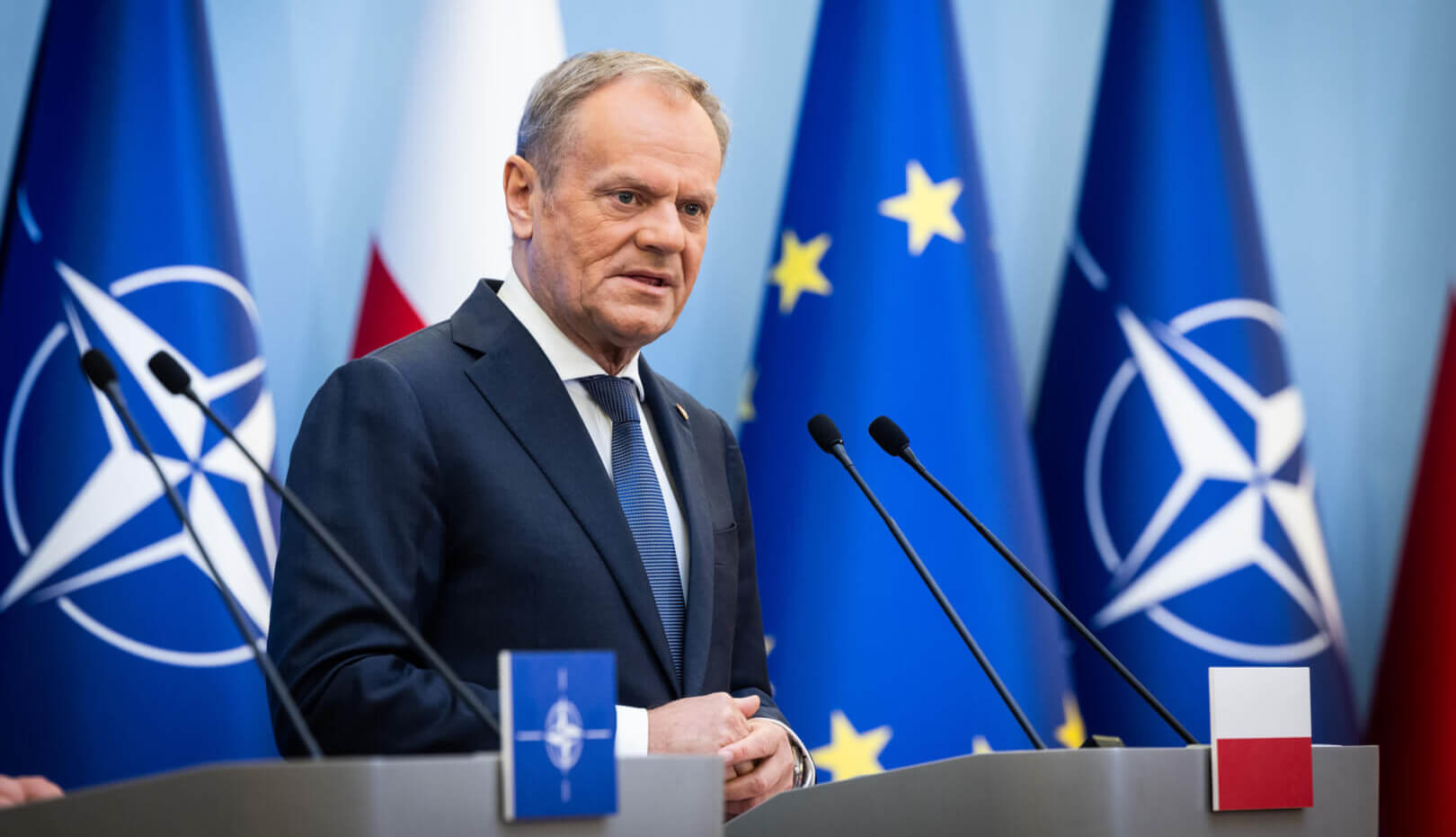Poland’s Constitutional Tribunal on Wednesday said the European Court of Human Rights (ECHR) had no power to question its appointment of judges. This decision amounts to a rejection of a ruling by Europe’s top human rights court last May.
What is most concerning here, is that it’s not just the latest round of skirmishes between Poland and the EU or a simple EU rule-of-law breach. It means that Poland no longer recognizes EU law supremacy and the EU treaties and it raises the question as to whether Poland if it insists on this course of action, should stay in Europe.
This is a situation that concerns both the EU (27 members) and the broader Council of Europe (47 members) that is separate from the EU but englobes it. The European Convention on Human Rights applies to members of the Council of Europe, an organization that was formed after World War Two to protect human rights and the rule of law.
The Secretary-General of the Council of Europe Marija Pejčinović Burić said in a statement that the Polish Tribunal’s judgment “is unprecedented and raises serious concerns.” She explained that “All 47 Council of Europe member states, including Poland, have undertaken to secure the rights and freedoms set out in the European Convention on Human Rights, as interpreted by the ECHR. Member states are also obliged to implement the European Court’s judgments.” She concluded: “We will carefully assess the judgment’s reasoning and its effects.”
The head of the Polish Constitutional Tribunal, judge Julia Przylebska, told Reuters, that for Poland parts of the EU treaties were incompatible with the Polish constitution. She referred to the European Convention (ECHR) and pointed to Article 6 of the European Convention, saying that “as far as it includes the Constitutional Tribunal in its definition of a court, [it] is not compatible,” with the Polish constitution, insofar as it gives the European Court of Human Rights the right to assess the legality of the appointment of the Tribunal’s judges.
For some context. It’s long been known that Poland’s Constitutional Tribunal is no longer an independent body. For several years now, the Polish government has systematically destroyed the independence of its judicial system. Poland’s ruling Law and Justice (PiS) party has introduced a series of judiciary reforms that critics, including the European Union’s executive, say may harm the independence of the courts. PiS legislators have also elected three constitutional court judges to roles already filled by the previous parliament – thus displacing democratically appointed judges with PiS party-appointed ones.
In October, as reported here, Poland’s Constitutional Tribunal issued a ruling that directly challenged the Court of Justice of the European Union’s mandate, saying Poland’s laws overrode EU law – hence threatening the primacy of European law, one of the pillars of the European Union.
The specific ECHR May ruling the Polish Constitutional Tribunal took aim at is the following: it is the one whereby the ECHR ruled that a Polish company had been denied its right to a proper hearing due to the illegal appointment of a Constitutional Tribunal judge. Hence the response yesterday from the Polish Tribunal, ruling that the Tribunal was not a court under the European Convention as “it controls the hierarchy of laws and does not rule on individuals’ rights”.
But it’s not just the independence of the judicial system that is at risk in Poland. Also, and equally worrying for the good functioning of democracy in that country, is the freedom of the press: In Poland, it is no longer free.
This summer, in August, amid cries of “Treason!” and “Fraud!”, a new bill passed through the Polish lower house designed to only grant licenses to companies not majority-owned outside the European Economic Area. The bill was seen to target one of the most popular independent news outlets, American-owned news station TVN, often critical of the government. Thus it had been widely condemned as an attack on the democratic principles of free speech and the freedom of the media.
The outlook: Can Poland get away with flouting EU law?
So far Poland has gotten away with flouting EU rules and treaties without much of a response from the EU beyond a slap on the wrists and the EU Commission withholding Covid pandemic recovery funds.
In fact, the Polish Tribunal’s ruling was met with glee by the nationalist government, saying its judicial reforms are intended to sweep away remnants of communist influence and bring to heel judges who think they are above the law. A cabinet minister, Michal Wojcik welcomed the Tribunal’s ruling with a tweet, claiming “Today, the rule of law has won over the usurpation of competencies”.
But with the new German government, things could change. The incoming German government in its coalition agreement just out on Wednesday vowed that it would “push Brussels to be tough on rule of law and Brexit.” With a harder stance on rule of law issues, the European Commission can be expected to shed off its shyness and better implement existing rule of law instruments and rulings of European courts.
Poland would do well to remember that once Germany is fully back in the European game, it will need to toe the line. The risk for Poland is not so much an actual exit from the EU. Most Poles don’t want that and no Polish government would risk it, not even PiS. But suspension could happen, and that means no more voting in Brussels and no more funding, no recovery from the pandemic, no boosting of the economy. And that could hurt.
Editor’s Note: The opinions expressed here by Impakter.com columnists or contributors are their own, not those of Impakter.com. — In the featured image: Seal on the door of the Polish Constitutional Tribunal court (close-up) Source: screenshot DW video, see: “EU’s top court says Polish rules on appointing judges violate EU law“














